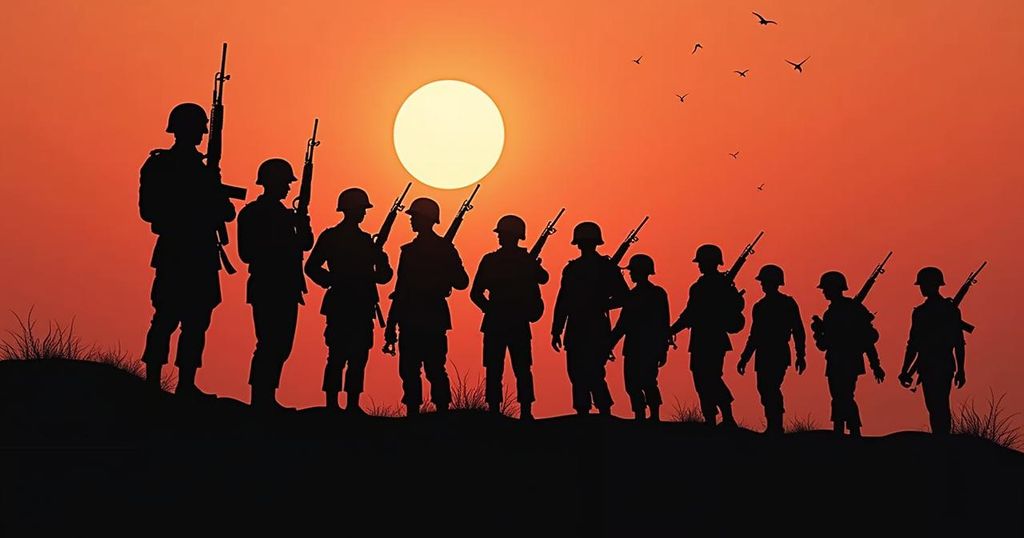The Tunisian army’s role in politics has grown significantly since President Kais Saied took office in 2019, raising alarms as the country nears a controversial presidential election. Historically marginalized, the military emerged as a protector of democracy post-revolution, but its increasing influence under Saied raises questions about potential authoritarianism. Observers are concerned about how the military will position itself regarding Saied’s power and the upcoming elections.
The increasing involvement of the Tunisian military in political affairs is raising concerns as the country approaches its presidential election. Historically, the Tunisian army was sidelined during the regimes of Presidents Habib Bourguiba and Zine el-Abidine Ben Ali. However, its status transformed during the 2011 revolution when it became perceived as a protector of democratic values. Since President Kais Saied’s rise to power in 2019, the military’s political influence has grown significantly. Saied endeavored to curry favor with the armed forces, which was crucial for his consolidation of power in July 2021. This included unprecedented appointments of military personnel to key ministerial roles, indicating a departure from Tunisia’s historical precedent. Critics express alarm over this increased militarization of governance, particularly in light of the upcoming elections, which are viewed as having compromised integrity. Unlike armies in other regional countries, the Tunisian military traditionally refrained from direct political engagement, primarily remaining a stabilizing force. The army’s role became more prominent post-revolution, notably in election logistics and in responding to national security threats. The military received substantial support from international partners, furthering its capabilities. Under Saied, who controversially declared himself head of all arms of the military, tensions have emerged between his administration and military leaders, especially following recent cabinet reshuffles. Military personnel have shown signs of discontent regarding Saied’s consolidation of political power and suppression of dissent. As the elections approach, questions arise about whether the military will continue to support Saied’s agenda or revert to its historical commitment to state protections against authoritarianism. Overall, the dynamics between Kais Saied and the Tunisian army reflect a critical juncture in the nation’s governance, with potential implications for its democratic trajectory.
Since Tunisia gained independence in 1956, the military has been strategically marginalized by political leaders, particularly Bourguiba, who emphasized a civilian-led government influenced by French political models. The army was often perceived as a threat, notably during the 1991 Barraket Essahel case, which led to the arrest of numerous military officers accused of conspiracies. However, the 2011 revolution marked a turning point, where the military’s role shifted to being viewed as a stabilizing force during times of upheaval. Over the decade that followed, the military increasingly engaged in national order maintenance and electoral process facilitation, which solidified its public standing. The army’s robust relationship with Western nations, particularly the United States, facilitated substantial military funding and training, thereby enhancing its operational capacity and significance in Tunisia’s security framework. As Kais Saied assumed the presidency, his engagement with the military and subsequent dependencies on its support have raised questions regarding the potential militarization of politics and the implications for Tunisia’s democratic processes.
In conclusion, the rising political influence of the Tunisian military under President Kais Saied poses significant concerns as the country prepares for critical elections. The military, historically a non-political entity, has found itself increasingly enmeshed in governance, raising questions about its role in preserving democratic values amid Saied’s considerable consolidation of power. Observers are now closely watching how the military will navigate its allegiance—whether it will uphold its historical commitment to protecting the republican state or further entrench itself within a potentially authoritarian regime. The forthcoming elections represent a decisive moment for Tunisia’s political landscape that will test these dynamics significantly.
Original Source: www.middleeasteye.net






